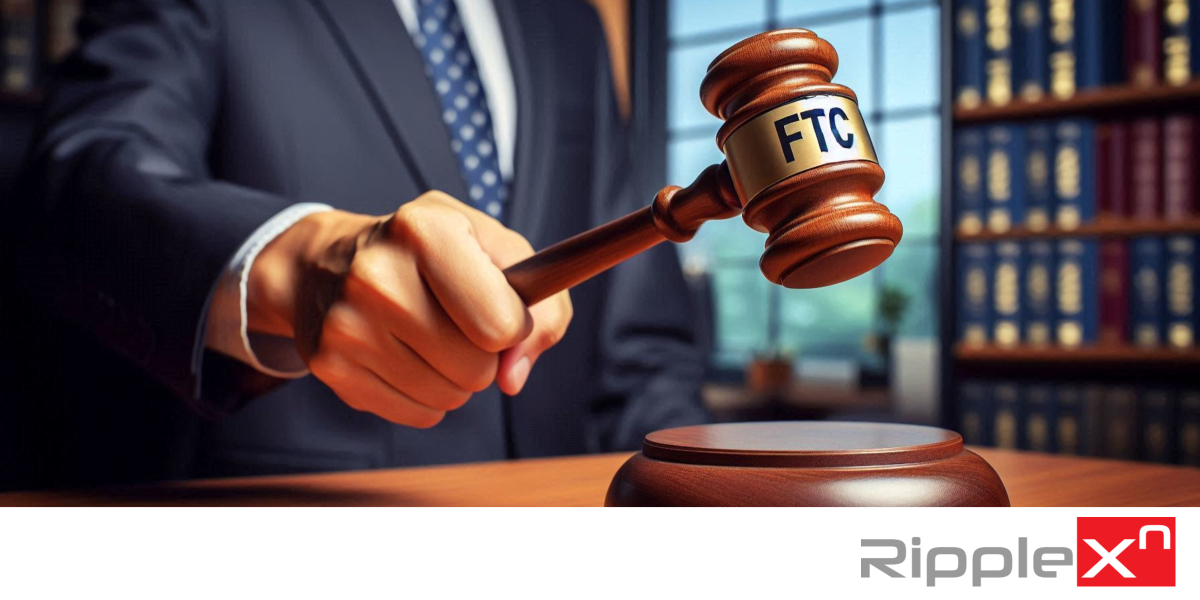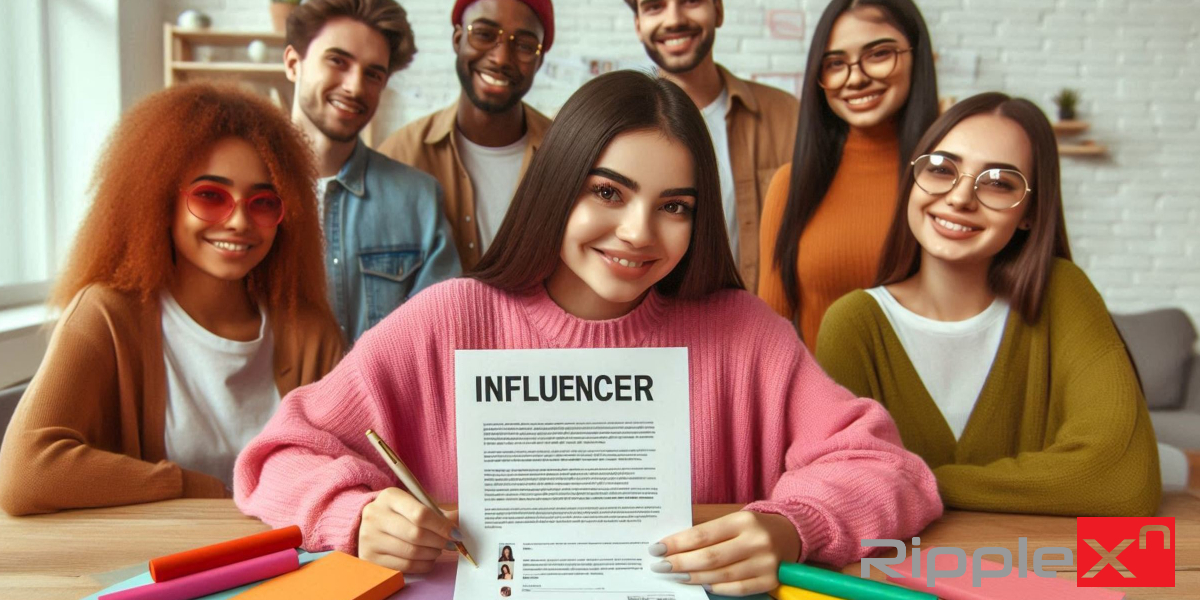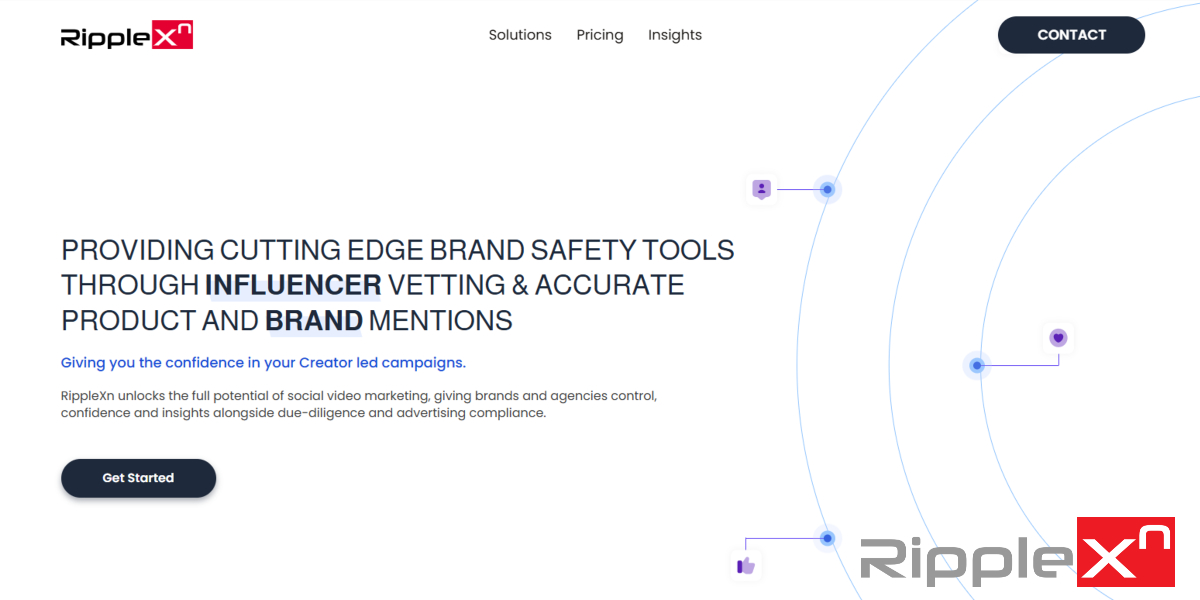Influencer marketing is a relationship between a brand (or their agent) and an influencer.
The influencer promotes the brand's products or services through various media outlets such as Instagram and YouTube as per their arrangement. This route to market is today incredibly common, successful and has many pros.
This article will take you through a journey of what is influencer marketing, why do brands use influencers for their promotions, types of collaborations and how this boils down legally.
What Exactly Is Influencer Marketing?
Influencer marketing involves brands forming partnerships with channels and content creators who have a strong influence on their target demographic to endorse a product or service.
These influencers can be celebrities in their own right, bloggers, journalists, or individuals with a strong expertise within a specific industry.
The success of influencer marketing hinges on the brand's ability to identify the right influencers, provide them with a product or service worth promoting, and adequately compensate them for their efforts. This compensation typically comes in the form of free products, exclusive discounts, or access to exclusive branded content. However, it can also involve paid endorsements, referral fees or mentions - a practice known as paid promotion.
Why do brands use influencers?
Brands utilise influencer marketing as an audience-appropriate alternative to traditional advertising.
- Influencers offer authenticity that resonates with their audience. Their unique voice and the perception of their endorsement being genuine and trustworthy potentially extends to the brand.
- By collaborating with influencers, brands can significantly increase their exposure. Influencers' extensive reach boosts brand awareness among their followers and attracts potential customers.
- Influencer content serves as digital word-of-mouth, driving customer engagement and propelling consumers through a brand's conversion funnel.
- Influencers continue to be a powerful force in online marketing as social media evolves. They create organic, relatable content that modern consumers desire, making influencer marketing an effective strategy for brands.
- Influencer marketing is not limited to big channels and well-known influencers. Micro-influencers can significantly contribute to a brand's success, particularly in niche markets or when engaged at scale.
The 10 most common types of influencer collaborations
10 types of influencer collaborations include:
1. Sponsored social media posts
Sponsored posts provide a simple way for brands to collaborate with influencers. In these partnerships, influencers produce content about a brand's product or service in return for a fee or product. These posts are typically tagged with #ad. Ideally, influencers promote brands they genuinely like while receiving compensation.
2. Brand ambassadors
If you're a brand seeking to build long-term relationships with influencers while boosting traffic and business, consider a brand ambassador. This is an influencer who consistently represents your brand through their content over an extended period. Brand ambassadors align with your company's values and serve as the face of your brand to your target audience.
3. Product collaborations
Product collaborations involve partnering with influential individuals who appreciate your products. If an influencer has proven successful in driving business and increasing traffic, you might consider dedicating a product or product line to them. A product collaboration entails a brand joining forces with a popular influencer to create and launch a new product, service, or product collection. This approach benefits influencers by giving them more recognition and a steady income. It also allows brands to have their products endorsed by a social media icon who genuinely supports their business. Product collaborations often seem more authentic due to their longer-term nature.
4. Influencer gifting
If you're a brand with a limited budget looking to raise product awareness, consider influencer gifting. This strategy involves providing influencers with free products in return for honest reviews. It's an effective way to initiate a professional relationship with an influencer and assess the outcome. Although they aren't paid, this arrangement benefits influencers by supplying them with free products for content creation.
5. Affiliate marketing
Affiliate marketing collaborations occur when brands supply influencers with tracking links or codes for their products, rewarding them with a commission for every sale generated. While brands typically gift their products to influencers in return for their content, they may also offer extra compensation or bonuses. In this scheme, influencers join as affiliates, sharing links to the brands' products and services.
6. Social media makeovers
Social media takeovers provide an opportunity for influencers to represent your brand authentically by showcasing their unique voice, thereby connecting with your audience differently. A takeover involves an influencer announcing to their followers that they will manage your account for a specified duration, often a day. During this period, they promote your products, which simultaneously enhances their own brand recognition and offers your brand an engaging advertising medium. The influencers can be compensated either monetarily or with product.
7. Giveaways
Giveaways can be mutually beneficial for brands and influencers. They enable influencers to enhance their engagement and follower count, while brands gain increased recognition. In giveaways, influencers encourage their followers to participate in a challenge or contest to win free products from a brand. This could involve joining an email list, tagging a friend, using a brand-specific hashtag, or following the brand's account. The brand typically supplies the prize, and may also compensate or provide products to the influencer.
8. Virtual events
If you seek collaboration that boosts brand exposure, consider virtual events, these are opportunities for influencers to represent a brand on platforms like Instagram, Twitch, YouTube, and Amazon Live, showcasing products to a vast audience. Live streams offer the flexibility for audiences to join at any given time. Influencers can also host these events on the brand's page. This allows followers and customers to witness influencers' genuine reactions to products, potentially increasing the follower count and engagement for both brands and influencers.
9. User-generated content
User-generated content (UGC) is a highly effective form of social media collaboration for brands. UGC collaborations involve social media users or customers creating content for a brand, which the brand then uses in its marketing efforts or on its own social media channels. In authentic UGC, the creator is not always compensated, but the brand seeks permission to use the content. However, some creators request payment for producing UGC that brands can use.
10. Sponsored blog posts
People often use social media platforms for shopping and finding trending products, but many also visit blogs for in-depth information about brands and their offerings. Sponsored blog posts can generate revenue through affiliate income, monetary compensation, or free product exchanges. Blogs enable brands to enhance their online presence and improve their SEO through links from the sponsored content.
The 3 types of commercial relationships
At a simplistic level, the above 10 campaign types and all potential hybrids come down to 3 generic categories
- “Sponsorship” - direct payment for an outcome. Typically with a contract and a set requirement.
- “Pay by Product” - as the name suggests the influencer gets the product or service to review and use it. The influencer may also monetise their channels alongside this.
- “Affiliation” - pay by results. The influencer may get a product or service, but they can earn commission by their viewers/followers clicking through to the retailer.
What are my legal responsibilities?
It’s crucial for everyone to understand their legal responsibilities when it comes to marketing and advertising. All countries have laws regulating advertising, and influencers must adhere to them. Regulatory bodies such as the UK's Advertising Standards Authority (ASA), Ireland's ASA, and the USA's Federal Trade Commission (FTC) oversee this. It's vital that any relationship between a brand and an influencer is clear and obvious. These laws guide that influencers should clearly disclose any commercial relationship they have with a brand, making sure that any sponsored content or advertisement is clearly labelled as such.
Furthermore, in the realm of financial services, influencers, or 'Finfluencers', must also adhere to rules set by financial regulators such as the UK's Financial Conduct Authority and the USA's Securities and Exchange Commission.
Importantly, it's not just influencers who must ensure legal compliance. Brands and their agencies are also liable, and there can be severe consequences for not adhering to these regulations. Therefore, it's in the best interest of everyone involved in influencer marketing to be aware of the legal landscape and ensure all activities are fully compliant.
What should I do next?
Talk to the RippleXn team at hello@ripplexn.com or via the onsite forms to discuss how to accurately report on your social media campaigns and advertising compliance.






